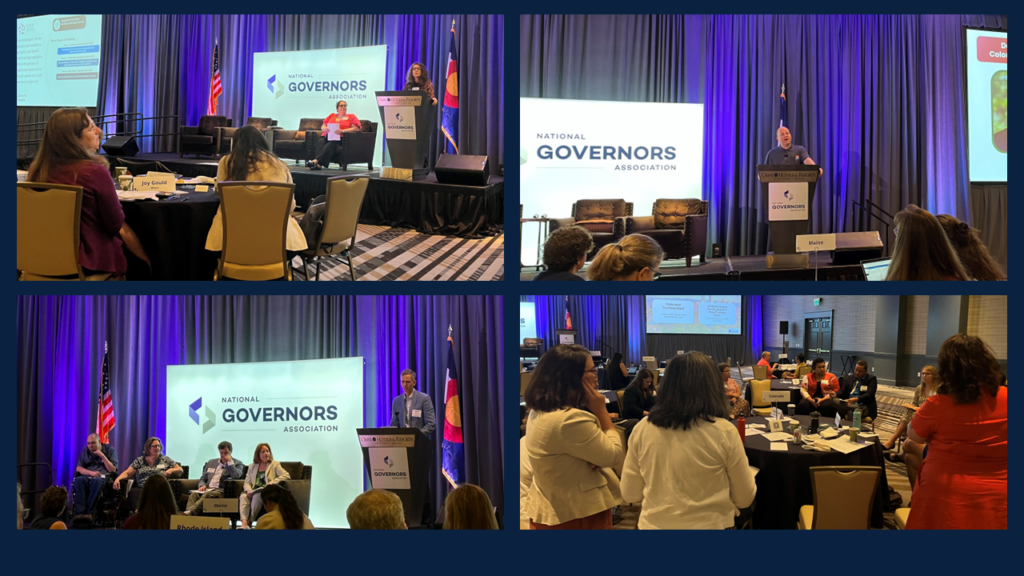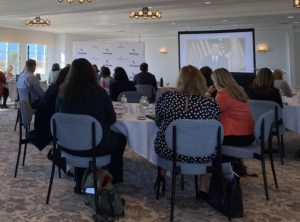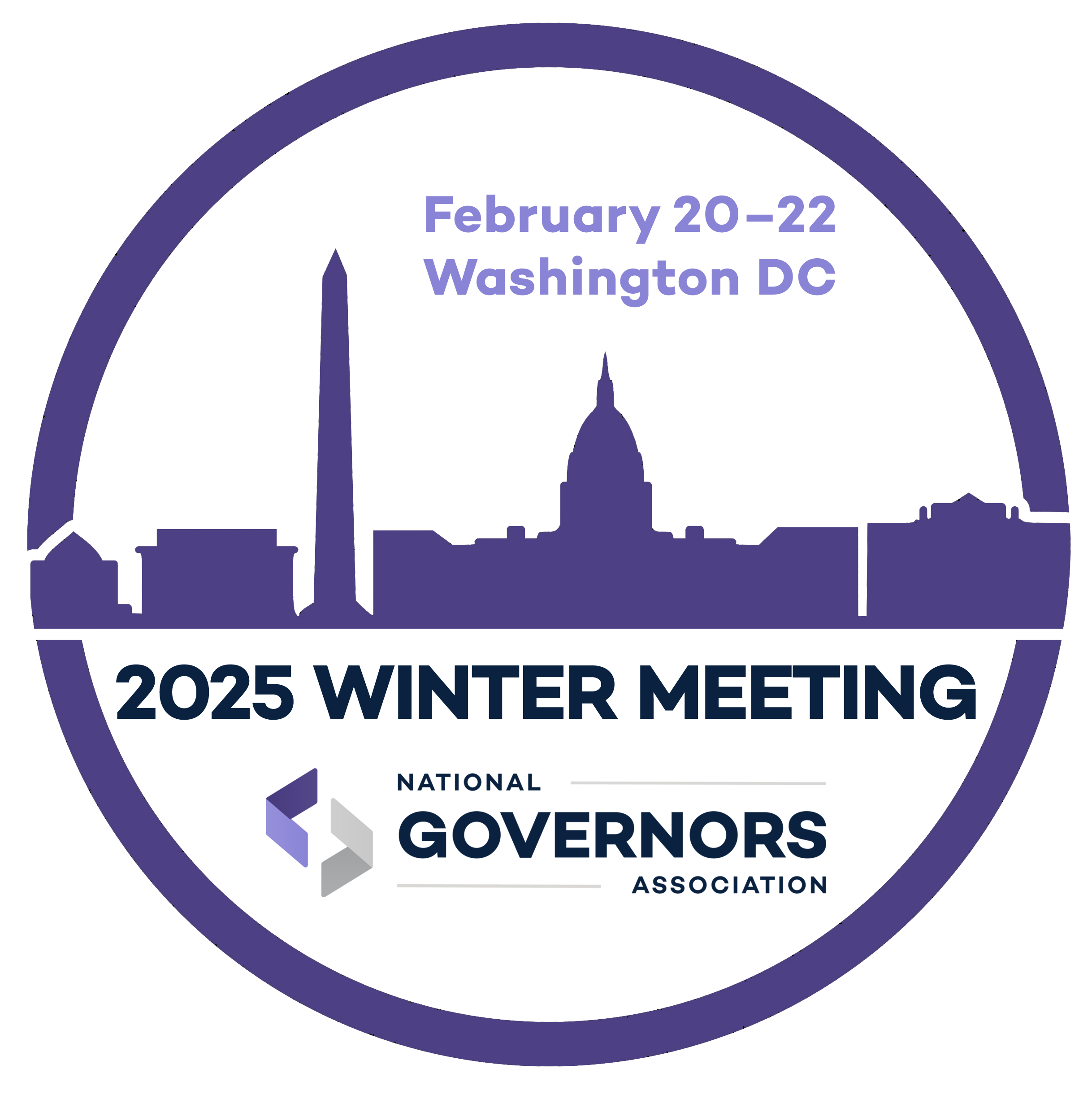The National Governors Association Center for Best Practices is working with States in a new learning collaborative on strategies to grow and retain the next generation of the healthcare workforce.

Concerns about healthcare workforce supply and preparing the next generation of the healthcare workforce have been building for several years for a variety of reasons. The retirement and aging of an entire generation is front and center of the healthcare workforce shortage, particularly impacting rural communities. Like in other sectors, the healthcare workforce is rapidly aging: over a quarter of all physicians are over 60 years old, the average age of a nurse is over 50, and the average age of the mental/behavioral health workforce is over 50 years old. The onset of the COVID-19 pandemic has exacerbated these issues to an extreme, and accelerated flight from the healthcare delivery field dramatically. Nearly 20% of the healthcare workforce have left positions since the beginning of the pandemic, with an additional 20% contemplating leaving positions as of February 2020.
In response to this alarming scenario, the National Governors Association Center for Best Practices (NGA Center) launched a learning collaborative to support Governors’ offices and other senior state officials in implementing strategies to strengthen and grow the next generation of the healthcare workforce. An NGA learning collaborative is a six to nine month learning opportunity for states to assess their current operating environment, share successes and best practices, learn from national, state, and local experts, exchange ideas with other states, and develop and execute an action plan to achieve program and policy change based on state-identified goals. This learning collaborative ran from April through October 2022 and included California, Colorado, Missouri, and Wyoming. By learning directly from other states and national experts, the participating states gained an understanding of innovative and evidence-based policies, programs, and practices to create a positive environment for an enduring healthcare workforce.
Other interested states have been participating in the Next Gen Knowledge Exchange Network with the Learning Collaborative states. States in this group attended the project kick-off meeting, have had access to our healthcare workforce toolkit, convened in October in-person with the full network group to share best practices, received invitations to project webinars, and have had the opportunity to contribute their state’s best practices to the final project report.
The NGA Center is continuing the Knowledge Exchange Network and is currently adding more states and territories to this group. Please reach out to Anna Heard (AHeard@nga.org) if your state or territory is interested in joining. In the next year, we plan to host webinars featuring policy experts, including state-only webinars for cross-state discussion opportunities; facilitate in-person workshops and convenings; expand a limited access healthcare workforce planning toolkit; provide technical assistance; and more.
National Governors Association Healthcare Workforce Summit
The Next Generation of the Healthcare Workforce Project held a summit in Broomfield, Colorado on August 21-23, 2023. The summit brought together 18 state and territory leaders from the project group including, Alabama, American Samoa, California, Colorado, Connecticut, Illinois, Maine, Michigan, Minnesota, Missouri, Ohio, Oklahoma, Oregon, Rhode Island, South Carolina, Utah, Wisconsin, and Wyoming. The three-day meeting featured presentations from healthcare workforce experts and NGA partners in addition to providing opportunities for peer-to-peer learning and goal planning sessions.
Participants heard remarks from The Honorable Jared Polis, Governor of Colorado and NGA Vice Chair, as he highlighted investments made throughout Colorado to support the healthcare workforce. The Honorable Lieutenant Governor of Colorado, Dianne Primavera, also highlighted Colorado’s investments while moderating a panel on the intersections of aging and disability on workforce needs. The summit concluded with a focus on energizing states and territories toward the next year of work. Thank you to the Office of Governor Polis, Jarett Hughes, and Colorado state experts for hosting this gathering, and to HRSA for providing this opportunity to bring teams together.

Next Gen Healthcare Workforce Project States
- 2022 Learning Collaborative
- 2022 Knowledge Exchange Network
- 2023 Knowledge Exchange Network
- 2024 Knowledge Exchange Network
- Healthcare Workforce Policy Academy 2024
Note: Learning Collaborative and Policy Academy participants also become part of the Knowledge Exchange Network.
Next Generation of the Healthcare Workforce Fall Convening
The first phase of the project culminated in NGA convening 12 of the 16 participating states, including all four of the Learning Collaborative states, at a meeting in California in October 2022.

This meeting – and the programming support for the project – was generously funded by the Health Resources and Services Administration (HRSA). HRSA provided both recorded remarks from a national perspective from Captain Sheila Pradia-Williams, Deputy Associate Administrator for the Bureau of Health Workforce, and in-person remarks from Captain Nidhi Jain, Regional Medical Consultant in HRSA’s regional office, to highlight the agency’s work to support states in their efforts to bolster the healthcare workforce. This convening was also supported by Western Governors University and American Institutes for Research.
Participants heard recorded remarks from Wyoming Governor Mark Gordon, California Governor Gavin Newsom, Missouri Governor Mike Parson, and Colorado Governor Jared Polis, the four Governors of the NGA Learning Collaborative states. Each Governor highlighted unique challenges in their respective states and talked about ways their administrations and state agencies are investing in the next generation of the healthcare workforce.
The convening also featured in-depth reports on outcomes and accomplishments from NGA’s four Learning Collaborative States – California, Colorado, Missouri, and Wyoming. In addition to the state reports, NGA facilitated conversations on topics including rural health workforce, specialized care, industry collaboration, and initiative sustainability. These conversations featured presentations from Network states, national experts, and NGA partners. Participants also got a first look at NGA’s newly piloted Healthcare Workforce Toolkit, developed by NGA’s expert consultants at Veritas Health Solutions, who worked with NGA to develop resources based on state team input.
Click here for a summary and commentary on the meeting.
Project Kick-Off Event Highlights
The National Governors Association kicked-off the project with a virtual convening April 27-28. The kick-off event featured speakers from the Health Resources and Services Administration (HRSA), American institutes for Research (AIR), the American Medical Association (AMA), the American Nurses Association (ANA), the American Psychological Association (APA), Futuro Health, , the University of Washington Center for Health Workforce Studies, and Veritas Health Solutions. Watch highlights from the project kick-off event in the playlist below, with remarks from Beth Brinly, Van Ton-Quinlivan, Dr. Arthur Evans, and Captain Sheila Pradia-Williams.
Healthcare Workforce Resources
The healthcare workforce shortage
- British Medical Journal: Healthcare workers 7 times as likely to have severe COVID-19 as other workers
- Brookings: Essential but undervalued: Millions of healthcare workers aren’t getting the pay or respect they deserve in the COVID-19 pandemic
- The Council of State Governments: Long-Term Care Policy Guide
- Kaiser Family Foundation: Primary Care Health Professionals Shortage Areas
- National Library of Medicine: Racial Disparities in COVID-19 Mortality among Essential Workers in the United States
- Nursing Solutions: 2022 NSI National Healthcare Retention & RN Staffing Report.
- Pew Research Center: Health Worker Shortage Forces States to Scramble
- SAMHSA: Addressing Burnout in the Behavioral Health Workforce through Organizational Strategies
- University of St. Augustine: Nursing Data Blog
- University of St. Augustine: 60 Key Nursing Statistics and Trends for 2021
Payment reform
Planning and redesign
- Milbank: Direct Care Workforce Policy and Action Guide
- Niskanen Institute: Unmatched: Repairing the U.S Residency Pipeline
Diversity of the healthcare workforce
- George Washington University Institute of Public Health: Estimation and Comparison of Current and Future Racial/Ethnic Representation in the US Health Care Workforce
- National Medical Association research paper – Fatima Cody Stanford: The Importance of Diversity and Inclusion in the Healthcare Workforce
- National Library of Medicine: Racial Disparities in COVID-19 Mortality among Essential Workers in the United States
- Research paper – Kirsten Wilbur Developing Workforce Diversity in the Health Professions: A Social Justice Perspective
- University of St. Augustine: Diversity in Healthcare and the Importance of Representation
Aligning education with workforce needs
- Hunt institute: Human Capital for the 21st Century: Aligning Education with Future Workforce Needs
- National Library of Medicine research paper – Sharon Mickan: Exploring Future Health Workforce Educational Needs
- Texas Public Policy Foundation: Supplementing the Success Sequence
Top of license
- Association of American Medical Colleges: Letter to Washington Leadership
- George Mason University – Robert Graboyes: For Greater Healthcare Access, License Physicians Like Pilots
- Pacific Research Institute: Trimming Red Tape Isn’t Just For Health Emergencies
Potential Knowledge Exchange Network Outcomes
- Assembling or reengaging existing healthcare workforce bodies to provide recommendations and reports on healthcare workforce supply and quality
- Creating an implementation guide to improve healthcare workforce wellbeing
- Forming the regulatory, legislative, or executive language needed to enhance the career growth pipeline of entry-level healthcare workers
- Organizing a pathway to share relevant data between key departments to monitor healthcare supply and demand
- Other activities that support the growth and retention of the healthcare workforce
For additional information about this learning collaborative, please reach out to:
- Amanda Winters, Program Director, Postsecondary Education – AWinters@NGA.org
- Anna Heard, Senior Policy Analyst, Health – AHeard@NGA.org
- Portia Polk, Senior Policy Analyst – PPolk@NGA.org
- Elijah McCabe, Policy Analyst, Health – Emccabe@NGA.org
- Charlie Schonberger, Policy Analyst, Postsecondary Education – CSchonberger@NGA.org
This work is funded by generous support and partnership from the Health Resources and Services Administration (HRSA).













